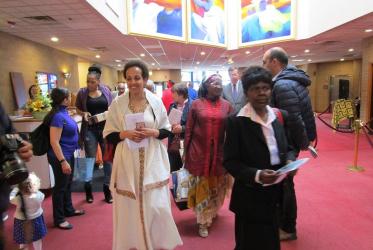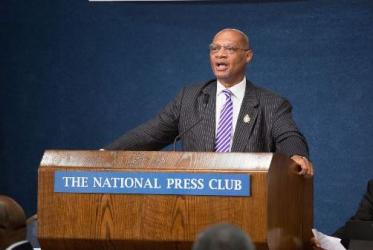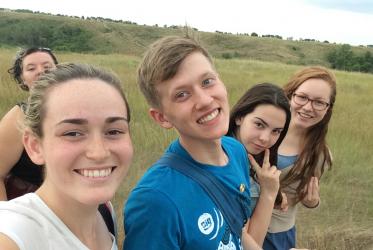Displaying 81 - 100 of 105
International affairs facilitator reflects on pilgrimage
31 March 2016
Religious leaders as agents of peace in the Americas
02 March 2016
Symposium focuses on religion, violence, extremism
04 February 2016
Churches call for United States to confront racism
08 September 2015
WCC encourages churches to pray on Hiroshima Day
06 August 2015
Advent protests in New York City
16 December 2014
WCC advisory group to promote gender justice
05 December 2014










